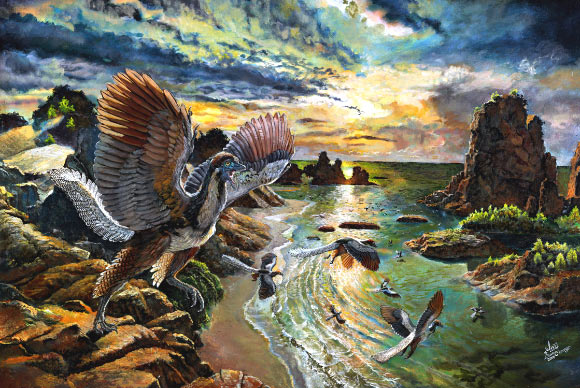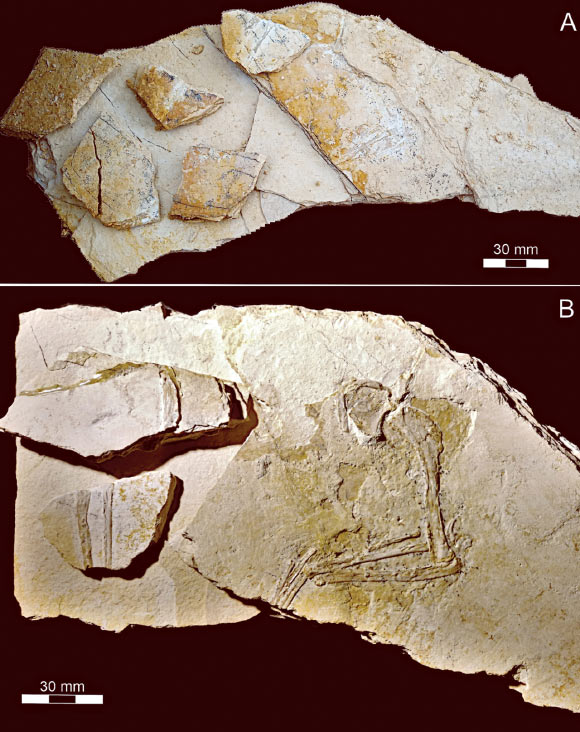Paleontologists have described a new specimen of the genus Archaeopteryx from the Mörnsheim Formation in the Franconian Alb of Bavaria, Germany.
Archaeopteryx is a genus of feathered bird-like dinosaurs that lived during the Jurassic period, about 150 million years ago.
Three species and over ten specimens of Archaeopteryx are currently known, all from Bavaria, Germany.
Regarded as the first-known bird, Archaeopteryx had primitive traits like teeth and a long bony tail, and was similar in size to a Eurasian magpie.
“Archaeopteryx has played a crucial role in the controversy about the theory of evolution in general and the origin of birds in particular,” said Dr. Christian Foth, a paleontologist at the University of Fribourg and the Universität Rostock, and his colleagues.
“This taxon to date is only known from the lower Tithonian of Bavaria, Germany, with nine out of eleven specimens currently referred to this genus having been unearthed from the Altmühltal Formation.”
“Morphological variations — for example, dentition and limb proportions — within the genus suggest that Archaeopteryx underwent evolutionary changes and may have split into different species throughout this time.”
“For more than 150 years, the genus Archaeopteryx was the only Jurassic representative referable to Paraves, a theropod clade that includes birds and their closest relatives, dromaeosaurids and troodontids,” they added.
“The discovery of a diverse assemblage of paravian theropods from slightly older rocks in northeast China during the last decades, the identification of the fragmentary Haarlem specimen of Archaeopteryx as a separate taxon, Ostromia crassipes, and the discovery of Alcmonavis poeschli, revealed a hitherto unexpected complexity of paravian evolution, diversity and distribution during the Late Jurassic.”

The new Archaeopteryx specimen — a fragmentary skeleton — was discovered in May 2019 in the Mörnsheim Formation at Mühlheim in Bavaria,…
Read the full article here

